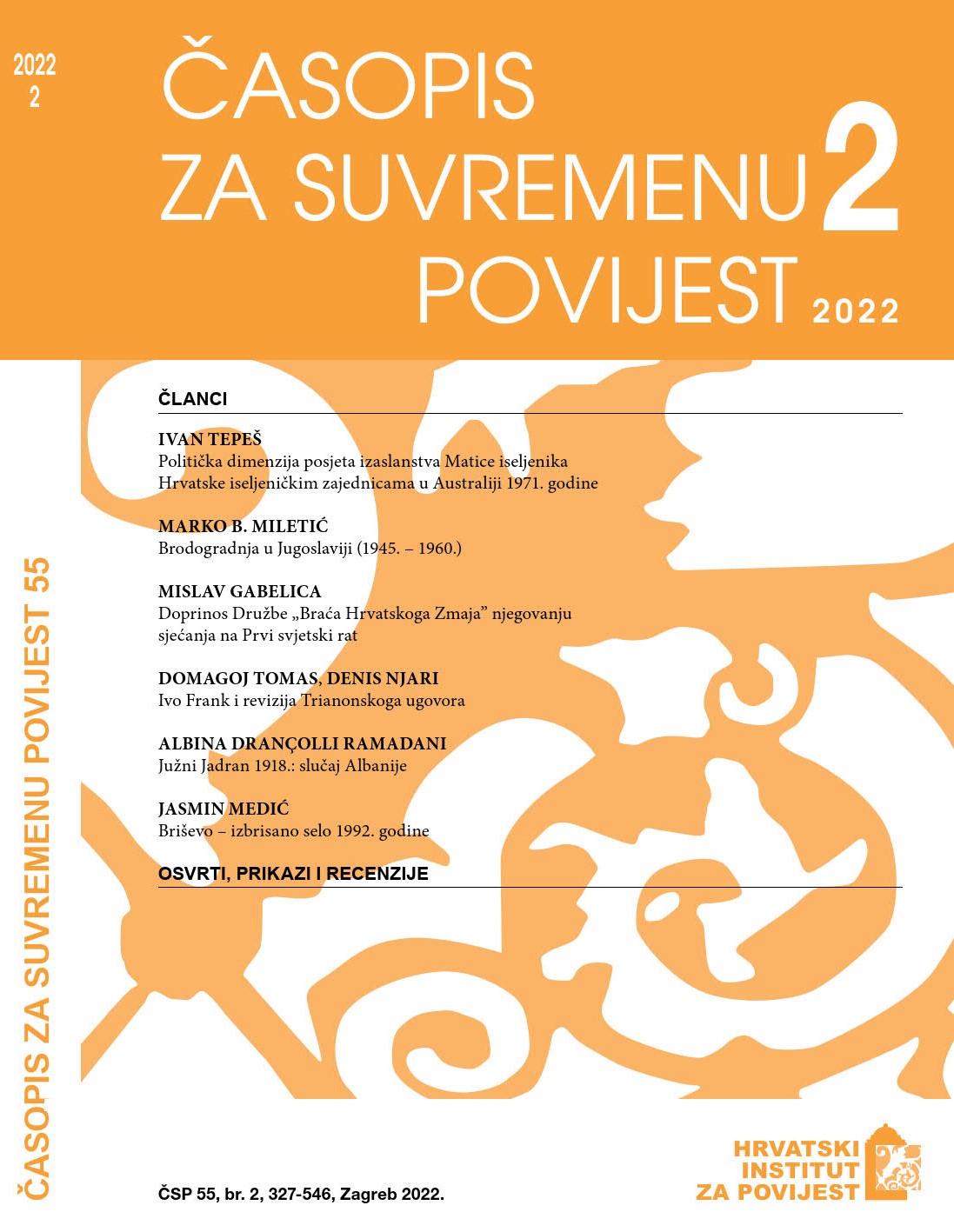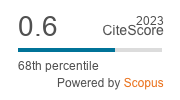The Southern Adriatic in 1918: The Case of Albania
DOI:
https://doi.org/10.22586/csp.v54i2.20521Keywords:
Southern Adriatic; Albania; Valona (Vlorë, Vlora); Durazzo (Durrës); Entente Powers; Central PowersAbstract
During World War I, the Southern Adriatic, including the Albanian coast, witnessed a series of naval battles between the Allies and the Central Powers. Two pre-war Adriatic powers hastened to occupy two of the most important Albanian ports during the war: Italy occupied Vlorë, placing the Otranto Strait under Italian control, and Austria-Hungary occupied Durrës, from where the Central Powers attacked the Allies’ ships in the Mediterranean. Although the Central Powers held a superior position in the Adriatic at the beginning of the war, from 1916 the balance of forces started to change, and in spring 1918 the Allies were in a superior position. Major developments in the war, which was coming to an end, influenced the situation in the Southern Adriatic as well, and therefore the Great Powers became more attentive towards this part of the Balkans. In addition, they organised offensives and counter-offensives, such as those in April, in summer, and in October, the results of which showed the significance of Albanian ports in the war. They revealed the geostrategic importance of Vlorë, the possession or loss of which would change the naval situation in Adriatic. On the other hand, Durrës was not only an Austro-Hungarian naval base during the war, but also became a key port that the Central Powers relied on for supplies after the fall of Bulgaria. Therefore, the naval operation of Entente Powers in Durrës on 2 October 1918 and their victory was a step closer to the collapse of Austria-Hungary. The immediate reaction of Italy was to occupy two important ports in Albania, Durrës and Shëngjin.
Downloads
Published
How to Cite
Issue
Section
License
Copyright (c) 2022 authors and journal

This work is licensed under a Creative Commons Attribution-NonCommercial 4.0 International License.
Copyright holders are the publisher Croatian Institute of History and the authors. Journal of Contemporary History is an Open Access journal. Users are allowed to read, download, copy, redistribute, print, search and link to material, and alter, transform, or build upon the material, or use them for any other lawful purpose as long as they attribute the source in an appropriate manner according to the Creative Commons licence CC BY-NC. The papers published in Journal of Contemporary History can be deposited and self-archived in the institutional and thematic repositories providing the link to the journal's web pages and HRČAK. Journal does not charge article processing charges (APC). The editors assume no responsibility for statements of fact or opinion made by contributors.




